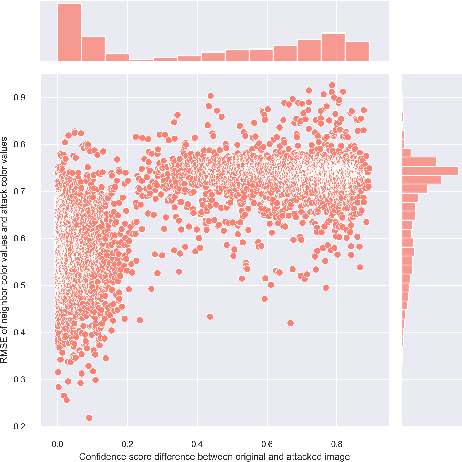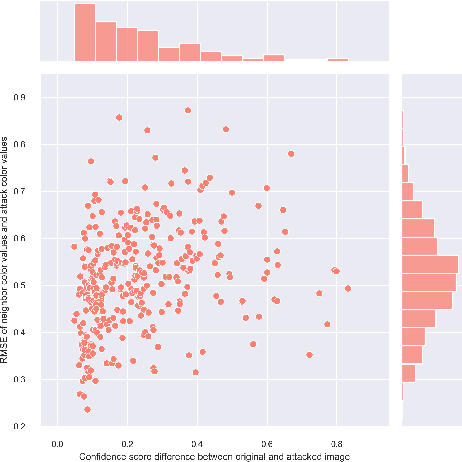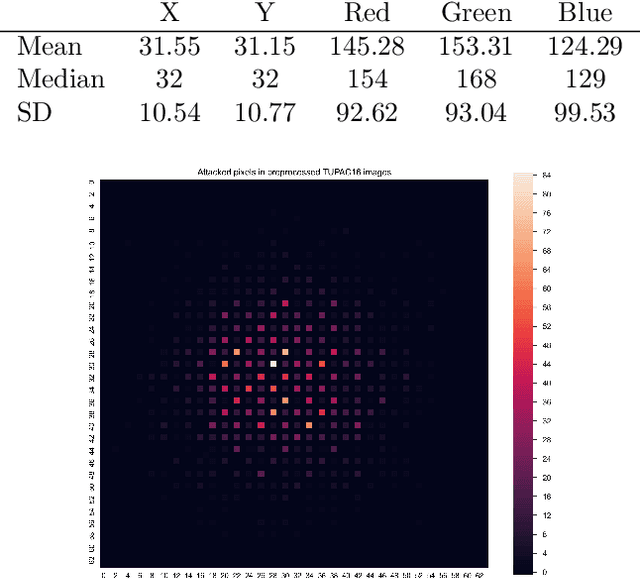Chromatic and spatial analysis of one-pixel attacks against an image classifier
Paper and Code
Jun 07, 2021



One-pixel attack is a curious way of deceiving neural network classifier by changing only one pixel in the input image. The full potential and boundaries of this attack method are not yet fully understood. In this research, the successful and unsuccessful attacks are studied in more detail to illustrate the working mechanisms of a one-pixel attack created using differential evolution. The data comes from our earlier studies where we applied the attack against medical imaging. We used a real breast cancer tissue dataset and a real classifier as the attack target. This research presents ways to analyze chromatic and spatial distributions of one-pixel attacks. In addition, we present one-pixel attack confidence maps to illustrate the behavior of the target classifier. We show that the more effective attacks change the color of the pixel more, and that the successful attacks are situated at the center of the images. This kind of analysis is not only useful for understanding the behavior of the attack but also the qualities of the classifying neural network.
 Add to Chrome
Add to Chrome Add to Firefox
Add to Firefox Add to Edge
Add to Edge